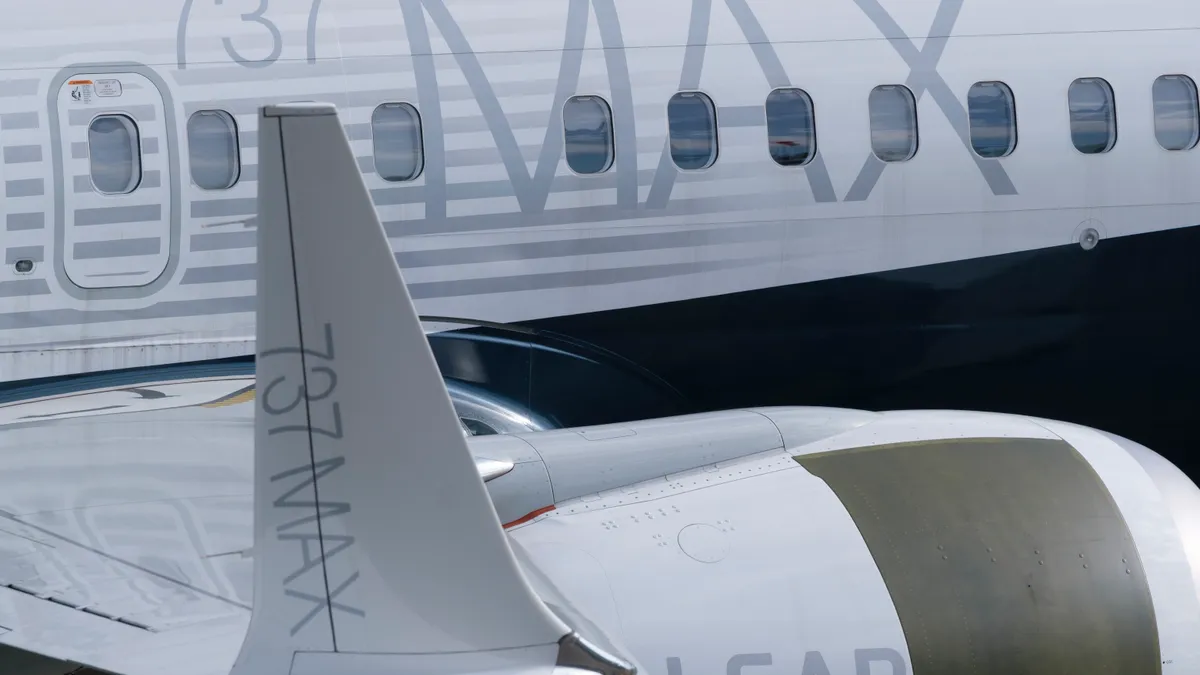Plaintiffs’ attorneys for four classes of passengers who claim they overpaid for their tickets on 737 MAX jets failed to show their clients suffered economic harm as a result of Boeing and Southwest Airlines allegedly conspiring to hide the plane’s safety issues.
“Plaintiffs have not plausibly alleged that any class member suffered either physical or economic injury from Boeing’s and Southwest’s alleged fraud,” Circuit Judge Andrew Oldham said in the unanimous opinion of the court.
Economic harm
Plaintiffs’ attorneys built their argument around a conjoint analysis by Greg Allenby, a marketing professor at Ohio State University, which showed demand for flights on Boeing 737 MAX 8 jets, and therefore ticket prices, would have plummeted had consumers known about the safety problems of the plane.
“‘The actual prices of the tickets … were significantly higher than the value of those tickets, which for many, if not most, passengers was zero,’” plaintiffs argued, according to the court.
The 737 MAX 8 jet was involved in two fatal crashes in 2018 and 2019, the first involving Lion Air in which all 189 people on board were killed and the second involving Ethiopian Airlines in which all 157 on board were killed.
In both cases, an automated flight stabilizer kicked in when it wasn't needed, driving the nose down. The Federal Aviation Administration in March 2019 grounded the plane for two years while Boeing resolved the problem.
Cover-up conspiracy
Plaintiffs alleged Boeing and Southwest, the first airline to fly the plane, conspired to hide the problem from the FAA to make it easier for pilots to get trained on the new 737 model. Although American Airlines wasn’t involved in the alleged conspiracy, passengers who bought tickets on MAX 8 flights operated by that airline were also added as a class.
In its decision, the court said that the conjoint analysis – a survey technique to model how people devise a value for something – showed there would be little demand for tickets on 737 MAX flights if passengers knew of the plane’s safety problems, but went on to say that that’s beside the point.
If the safety problems were public knowledge, the court said, there would have been no flights for passengers to buy tickets for because the airlines wouldn’t be offering them and the FAA wouldn’t be allowing them.
“The more plausible inference is that Southwest and American would have offered zero MAX 8 flights until the defect could be fixed,” the court said. “Second, plaintiffs assume the FAA would have permitted airlines to fly the MAX 8 even with full knowledge of the … defect. This inference is even more implausible than the first.”
If anything, the court said, passengers underpaid for their tickets because if the airlines had pulled the flights for safety reasons, prices on remaining flights would have gone up to reflect the drop in supply.
“If the … defect had been widely exposed earlier, the MAX 8 flights plaintiffs chose would have been unavailable and they’d have had to take different, more expensive (or otherwise less desirable) flights instead,” the court said.
In short, plaintiffs didn’t pay a “fraud-induced overcharge,” as they claimed, and suffered no economic injury in fact, so they lack standing, the court said. The case was dismissed for want of jurisdiction.











